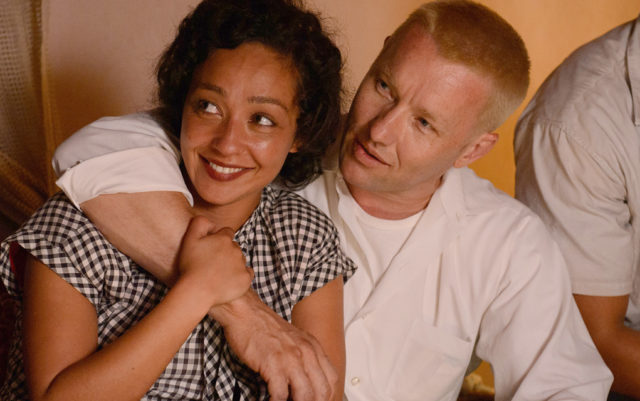
Richard and Mildred Loving just wanted to be together. They loved each other and wanted to raise a family and in 1958, the two drove from their home in Central Point, Virginia to Washington D.C. to become man and wife in the eyes of the law. That should have been the end of it, but it wasn’t. She was black and he was white and in the Commonwealth of Virginia, people were against such things.
But this was also a time of change for America. The massive Civil Rights Movement was just around the corner and the tide was shifting. The Loving’s case was a simple one, one that the American Civil Liberties Union (ACLU) wanted dearly on their books. They took the Loving’s miscegenation felony all the way to the United States Supreme Court, and in 1967, the justices invalidated any individual state’s law that forbade interracial marriage.
In a way, the Lovings were trailblazers, but not everyone wants to be the person out in front. Some people just want to be, and in writer/director Jeff Nichols’ latest drama, Loving, that person is Richard Loving (Joel Edgerton). Richard is a man of few words and fewer emotions. With his short haircut, white short-sleeve button-up and a silent, stoic manner, Richard is a poor laborer who just wants to be left alone to love his wife and raise his family. If his wife weren’t black, no one would have batted an eye.
Mildred (Ruth Negga) is a different story. She is fully aware of the injustice forced upon her and her husband. She knows that if she doesn’t take matters into her own hands, things won’t get better for her and they certainly won’t get any better for her children. Mildred writes to Attorney General Robert F. Kennedy hoping to enlist bigger guns in her fight and she gets them when the ACLU answers the call.
The dynamic between Richard and Mildred is what makes Loving such an interesting portrait of the interior of a marriage. Edgerton and Negga excel in their respective roles and hold the story together without over sentimentalizing or giving ham-fisted proclamations of civil liberties. The same cannot be said of Nick Kroll, who plays Bernard S. Cohen, the ACLU attorney assigned to see their case to the Supreme Court. Kroll cannot resist winking at the audience or languishing a word when it comes dripping with significance, particularly his over-emphasis of “the United States Supreme Court.”
But a hammy performance and moments of dramatic contrivance cannot undo Nichols’ touching and tender depiction of a marriage. As in his standout film, Take Shelter, Nichols gets to the heart of what makes a marriage work, and how the two people involved must work together, even if that means working against the other’s wishes. At times, Richard and Mildred look and act too incongruous to mesh, but in their vulnerable moments, they fit together like puzzle pieces and the image they create is one of domestic bliss. Loving was their name and it fit like a glove.














